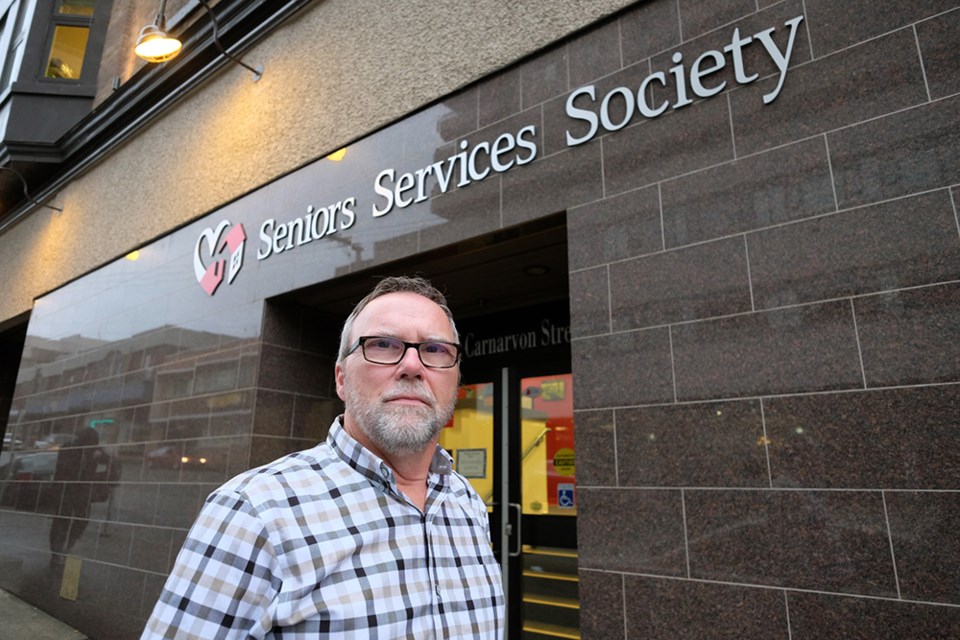Seniors Services Society is hoping the change in federal government will mean more money is available to help seniors at risk of homelessness.
The New Westminster groups helps seniors all over the Lower Mainland who are either first-time homeless or at risk of losing their housing.
“We’re hopeful with the changes in Ottawa there will be changes to funding for housing,” said Brian Dodd, from Seniors Services Society.
The previous federal government dedicated the lion’s share (65 per cent) of funding for homelessness initiatives to Housing First, a stream dedicated to helping the chronically homeless. That meant money went towards helping people who were either on the street for at least six months or three times, for more than a month at a time, in the past year.
That meant less funding for seniors who were facing homelessness for the first time. As a result, Dodd’s organization lost funding that covers outreach work and has had to turn away one in every three seniors.
“We’re hoping there will be changes to the system when our contract ends in September, so we can once again put more (outreach) bodies on the street,” Dodd said.
In the meantime, Seniors Services Society is working with other organizations whose clients don’t fit the street-entrenched profile of homelessness.
Lorrie Wasyliw is the executive director WINGS, which runs New Westminster’s Monarch Place, a transition house for women escaping abuse. Monarch Place also lost its $60,000 in federal funding (which paid for a fulltime outreach worker), when the government shifted its focus to the chronically homeless. That money covered a full-time outreach worker.
Women escaping violence (many with children in tow) are often facing homelessness for the first time, so like many seniors, they haven’t been homeless long enough to qualify for Housing First funding.
“We just could not fit that definition,” Wasyliw said. “That definition is not geared for seniors, not geared for our clients.”
The two groups gathered with other organizations to build their case for more funding. In the meantime, both WINGS and Seniors Services Society have secured some funding from B.C. Housing instead, and WINGS fundraised to make up the rest to continue the outreach work through Monarch Place.
“We as an organization just feel this is crucial piece of service for our clients, and we weren’t willing to lose it because it gets women and children into a safe, secure home and a future,” she said.
Dodd said the next step is to approach the federal government.
“We’ve laid a pretty solid case for maybe realigning how funds are spent in the future, so demographics, such as seniors aren’t left out in the cold if they don’t meet the Housing First criteria,” he said.



